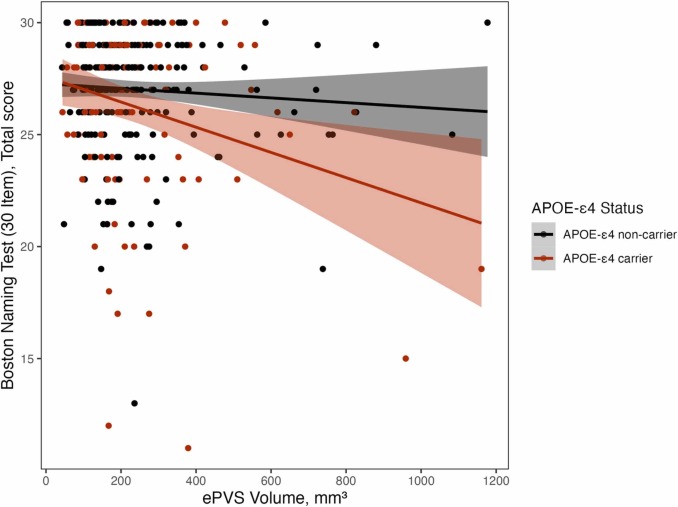Gogniat, M. A., Khan, O. A., Bown, C. W., Liu, D., Pechman, K. R., Taylor Davis, L., Gifford, K. A., Landman, B. A., Hohman, T. J., & Jefferson, A. L. (2024). Perivascular space burden interacts with APOE-ε4 status on cognition in older adults. Neurobiology of Aging, 136, 1–8. https://doi.org/10.1016/J.NEUROBIOLAGING.2024.01.002
A study from the Vanderbilt Memory and Aging Project explored how enlarged perivascular spaces (ePVS) in the brain, which are associated with vascular health, interact with genetic factors—specifically, the presence of the apolipoprotein (APOE)-ε4 allele, a genetic variant linked to Alzheimer’s disease risk—on cognitive functions. Analyzing brain MRI scans and cognitive performance data from 326 participants, researchers found that having more ePVS was associated with worse cognitive performance in naming and executive functions, particularly among those carrying the APOE-ε4 allele. Interestingly, while the impact of ePVS on cognition was more pronounced in APOE-ε4 carriers initially, over time, the negative effects of ePVS on cognition were stronger in non-carriers. This suggests that APOE-ε4 carriers might experience earlier cognitive decline influenced by other factors related to their genetic risk, overshadowing the impact of ePVS as they age.
